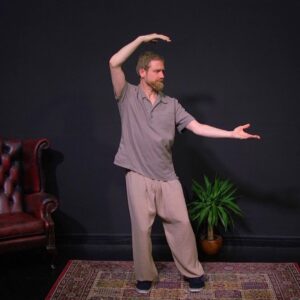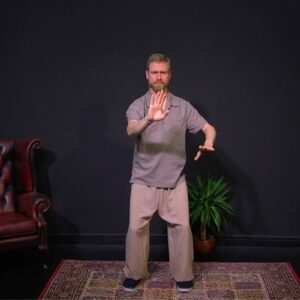We’ve been sold the idea that meditation sorts out every life problem and improves our lives, but what if it just isn’t working? Non-meditator Lorna V dispels the myth and champions alternatives.
By Lorna V
There are two things about me that always surprise people. I find learning to dance extremely difficult. And I don’t meditate. It’s not for lack of trying. I spent years struggling in dance classes, yet enjoyed every moment –and eventually reaped the benefits. I’ve tried (honestly) so many types of meditation, but no, I was no less stressed or anxious, and no more productive or focused. Forcing myself to sit and empty my brain, regardless of the method, does nothing for my stress levels.
We’re so used to reading about the health benefits of meditation, that if it’s not working and we’re still stressed then we believe it’s because we’re doing it wrong. But why meditation isn’t working for you isn’t necessarily because you didn’t stick to it.
Not wired to sit still
Because I’ve spent much of my career writing about mind, body and spirit, complementary health, self-development and psychology, I’ve had the benefit of discovering why meditation as we think of it doesn’t work for me. Time and time again experts I interviewed told me that I wasn’t wired up to sit still, and that during times of acute stress forcing myself to sit still made me feel worse.
I know I’m not alone. This was confirmed when I researched and wrote the book Real Calm for Psychologies magazine. For some people meditation can have the opposite effect of triggering stress rather than reducing it, and others feel like they are going through the motions of ‘pretending’ to meditate, without reaching the promised benefits.
Lasting calm

What I did discover along the way was that any form of movement practice, whether I was an enthusiastic, bendy natural in yoga, or an awkward, nervous, slow learner in Argentine Tango, led to a miracle: an experience of lasting calm, a tonic for my nervous system, a quiet mind. This is why I need to move rather than meditate daily, because in fact one leads to the (meditation) other, albeit in a different form.
After a powerful yoga class, regardless of the style, I’m in a place to meditate with the guidance of a teacher and ambient music. I find the power of holding hands in a circle for Greek dancing and moving together to music that beats from my heart and heritage a blissful, even spiritual experience, whilst dancing to Argentine tango has released more realisations over the years than therapy or ‘proper’ meditation.
Conversely: I sit, I fidget, I become agitated, I go through the motions of ‘meditating’, but I’m lying. To myself. However, a Matt Kahn meditation leads me to sit and focus mindfully on his soothing voice, and listening daily to Eckhart Tolle inspires me to seek out guided meditation with him.
When I am stressed, I realise that I haven’t moved or listened enough to a wise voice to boost my mental energy reserves and resilience.
Meditation in motion
Recently I revisited qigong and discovered that practising this integrated ancient Chinese mind-body system left me feeling more flexible, strong, focused, alert, calm , and able to handle the stress of writing my MSc dissertation. The slow, focused movements with coordinated breathing were just the trick to divert my mind. For me qigong feels like meditation in motion even though emberly’s resident qigong teacher Michael MacBean prefers to say the practice has ‘meditative qualities’.
Stress, explains MacBean, is primarily a physical response and if left untreated will be stored in the body. ‘Which is why we need to work from the body to open it up before we can destress,’ he says. Added to this stored stress is everything from any form of trauma to unhappiness we have experienced, all of it buried in the body, leading us to be tightened up in more ways than one. ‘Qigong works from the body to the mind, with the breathing and moving leading to mental relaxation,’ says MacBean. ‘Qigong recognises that we are not just a mind, we are also a body.’
‘Qigong recognises that we are not just a mind, we are also a body.’
My chat with MacBean reminded me that most meditation practices involved a physical dimension too in their original forms, however, modern quick fix versions have done away with these. It’s reassuring to hear him say that for some it might take years of meditation practice to get to a point of significant change. And let’s face it, most of us need solutions now.
The translation for ‘qi’ is life force, whilst ‘gong’ translates as excellent work over time or effort. ‘It’s about the working of your essential energy over a period of time,’ says MacBean. ‘Fluid movement encourages a fluid mind and body. To let go of a rigid response is what we need to cope with stress. As Bruce Lee said: “Be like water.” ’
We love to hear about your experiences. Do you have a practice you swear by for busting stress? Whether it’s dancing to disco or baking, let us know in the comments below.







These are great tips and I think we can all benefit from this!
Glad you think so, I wanted to write this hoping people would benefit 🙂
I appreciate your insight on meditation! You have great tips and perspective.
Really pleased this is helpful as I love to share what hasn’t worked for me and what does 🙂
You have no idea how much I needed this post, sometimes meditation just doesn’t work for me. Thank you for posting this!
So glad to hear it’s been helpful. You’re not alone, there are many of us!
I just had to share that it often doesn’t work for me, at least in the way we are told it ‘should’ work.
Great post! Meditation is not one-size-fits-all, especially for those who don’t like to sit still!
It’s good to explore different things. Let us know how your journey unfolds.
Glad to hear I’m not the only one who absolutely cannot sit still!
Great article! I find it challenging to meditate too at times and realize I should explore different forms.
YASSS! Let us know how you get on with your explorations and if you find ‘the one’ (realistically several, one for each mood).
As soon as I let go of trying and found other forms to clear my head it was so rewarding.
I’ve tried meditation with friends but like you, never found it satisfying. Your explanation is simple and yes, I’m one of those people who can’t sit still. I love my morning/evening walks, especially when I don’t have a project to plan … I just let my mind wander and enjoy this with no pressure, so it’s relaxing.
I forgot to mention walking! Well there wasn’t space, and walking is a whole other post.
That’s my favourite to Tina, especially in nature.